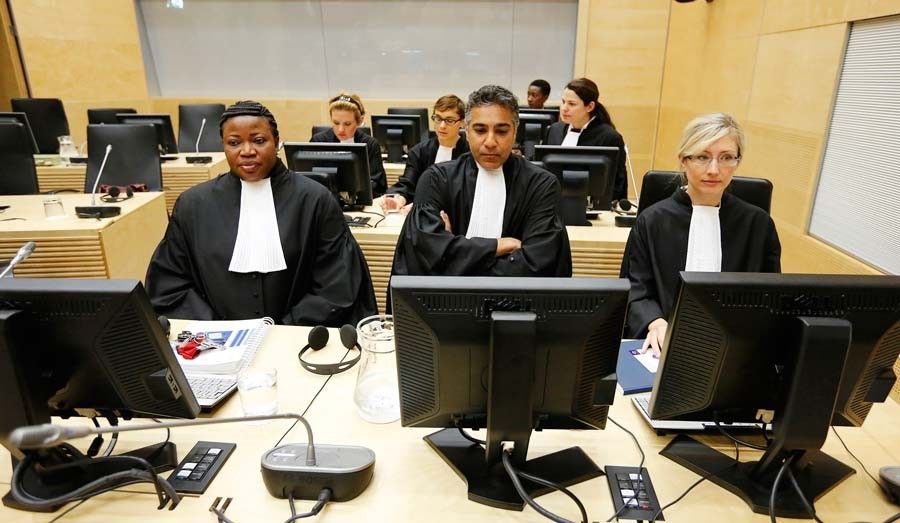ICC prosecutor issues warning vs killings in Philippines

MANILA, Philippines (UPDATE 2, 9:21 a.m.) — Extrajudicial killings of drug suspects in the Philippines, when committed in pursuing state policy, may fall under the jurisdiction of the International Criminal Court (ICC), the court prosecutor said on Thursday.
Prosecutor Fatou Bensouda said the Philippines is a party to the ICC, which examines, investigates and prosecutes crimes of genocide, crimes against humanity and war crimes.
Bensouda called the reported killings of more than 3,000 drug dealers and users in the Philippines "worrying," and vowed to follow developments in the country in the following weeks.
"Extra-judicial killings may fall under the jurisdiction of the International Criminal Court if they are committed as part of a widespread or systematic attack against a civilian population pursuant to a State policy to commit such an attack," Bensouda said in a statement issued in The Hague.
"Let me be clear: any person in the Philippines who incites or engages in acts of mass violence including by ordering, requesting, encouraging or contributing, in any other manner, to the commission of crimes within the jurisdiction of the ICC is potentially liable to prosecution before the Court," she added.
Bensouda said statements of officials also seem to encourage violence against suspected drug offenders.
"I am deeply concerned about these alleged killings and the fact that public statements of high officials of the Republic of the Philippines seem to condone such killings and further seem to encourage State forces and civilians alike to continue targeting these individuals with lethal force," Bensouda said.
Bensouda's office has been conducting investigations in Uganda, the Democratic Republic of the Congo, Darfur, Sudan, the Central African Republic, Kenya, Libya, Côte d'Ivoire, Mali and Georgia. It is also undertaking preliminary examinations relating to the situations in Afghanistan, Burundi, the registered vessels of Comoros, Greece and Cambodia, Colombia, Gabon, Guinea, Iraq and the United Kingdom, Palestine, Nigeria and Ukraine.
"(We will) record any instance of incitement or resort to violence with a view to assessing whether a preliminary examination into the situation of the Philippines needs to be opened," Bensouda said.
Gov't condoning killings?
The United Nations Committee on Economic, Social and Cultural Rights had a similar observation as the ICC prosecutor. In an unedited version of its concluding observations dated October 7, the UN panel said high-ranking officials are making declarations that could be interpreted as license to commit violence against drug suspects.
"The Committee is deeply concerned that declarations made by high ranking officials in the context of the 'war on drugs' may be seen to encourage and legitimize violence against drug users, including extrajudicial killings," the UN body said in the report.
It also said the crackdown on illegal substances has disproportionately affected the poor.
The Philippine government led by President Rodrigo Duterte, however, addressed accusations of human rights in the drug war by saying deaths recorded in police operations were out of acts of self defense by enforcers. Deaths of drug suspects outside police efforts, meanwhile, have been found to by incited by members of cartels and vigilante assailants.
Duterte's administration has invited the United Nations to investigate the drug-related killings and lashed back at the criticisms made beyond the country's shores.
Drug policy experts noted that deaths and violence in the Philippines are similar to those experienced in other countries that have waged their own aggressive campaign against illegal drugs.
"What we find is that aggressive enforcement often spikes violence by disrupting cartel structures, leading to fragmentation of operations whereby members of cartel go to war with each other for control of the organization or splinter into rival groups competing over turf," John Collins, executive director of London School of Economics IDEAS International Drug Policy Project, told Philstar.com.
Enforcement-heavy wars against drugs around the world in the past century are found to have failed in cutting the supply and demand of substances in the long run. Acknowledging that the drug problem persists, experts recommend a holistic approach to managing it.
"The right objective should be to minimize violence in criminal markets and maximize public health. For both of those objectives, the war on drugs in the Philippines unleashed by Duterte is not only ineffective but outright counterproductive," said Vanda Felbab-Brown, a Brookings Institution scholar on urban violence and drug policy. — with Philstar NewsLab
- Latest
- Trending































